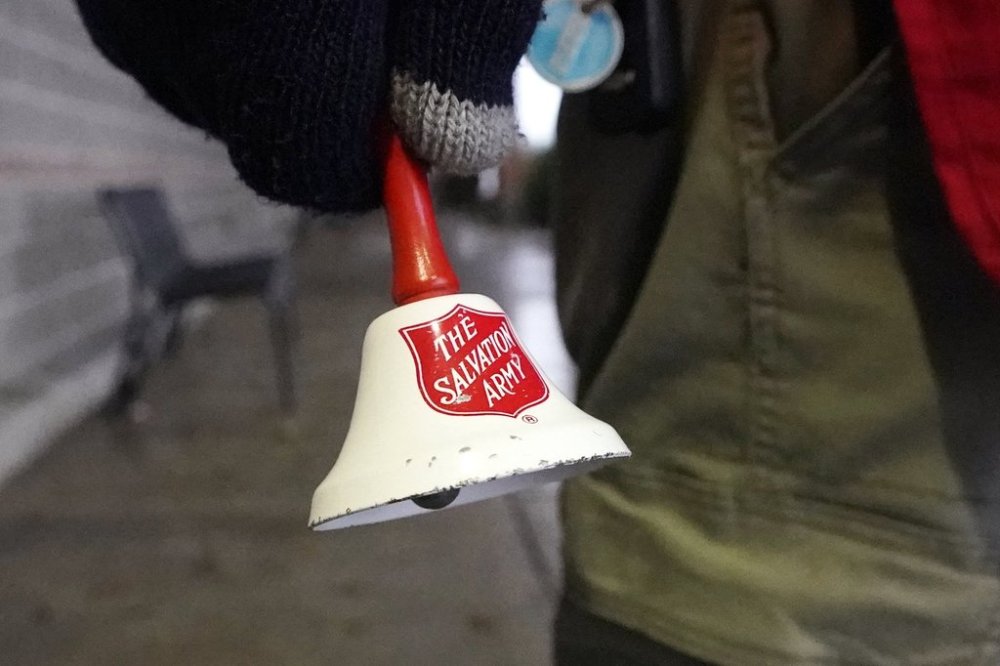Salvation Army survey suggests Canadians feel hard hit by tariffs, insecurity growing
Advertisement
Read this article for free:
or
Already have an account? Log in here »
To continue reading, please subscribe:
Monthly Digital Subscription
$0 for the first 4 weeks*
- Enjoy unlimited reading on winnipegfreepress.com
- Read the E-Edition, our digital replica newspaper
- Access News Break, our award-winning app
- Play interactive puzzles
*No charge for 4 weeks then price increases to the regular rate of $19.00 plus GST every four weeks. Offer available to new and qualified returning subscribers only. Cancel any time.
Monthly Digital Subscription
$4.75/week*
- Enjoy unlimited reading on winnipegfreepress.com
- Read the E-Edition, our digital replica newspaper
- Access News Break, our award-winning app
- Play interactive puzzles
*Billed as $19 plus GST every four weeks. Cancel any time.
To continue reading, please subscribe:
Add Free Press access to your Brandon Sun subscription for only an additional
$1 for the first 4 weeks*
*Your next subscription payment will increase by $1.00 and you will be charged $16.99 plus GST for four weeks. After four weeks, your payment will increase to $23.99 plus GST every four weeks.
Read unlimited articles for free today:
or
Already have an account? Log in here »
Most Canadians believe U.S. tariffs are hitting them in their pocketbooks, according to a new report from the Salvation Army that suggests financial optimism is flagging.
The online survey of more than 1,500 Canadians found 86 per cent agreed the tariffs were driving up the cost of household staples, and 79 per cent believed American trade policies were hurting low-income households the most.
“As we look at things like the impact of U.S. tariffs driving up prices on everyday goods, certainly we see a lot of Canadians responding to the survey expressing that they have seen this to be true,” said Glenn van Gulik, territorial communications manager for The Salvation Army Canada.

The Annual Canadian Poverty and Socioeconomic Analysis also found the portion of Canadians who feel optimistic about their finances dropped from 51 per cent last year to 46 per cent this year.
It found concerns around jobs are growing, with 22 per cent of respondents saying unemployment and job insecurity were among their three biggest worries, compared to 14 per cent last year and 10 per cent in 2023.
Health care remains the most common worry for Canadians, though the percentage dropped between 2024 and 2025, from 59 per cent to 51 per cent saying it concerns them.
Still, the news out of the report wasn’t entirely bad.
Those dealing with health issues dropped from 54 per cent last year to 47 per cent this year.
And the portion of respondents who said they were managing limited financial resources stayed steady at 64 per cent, down from 68 per cent in 2023.
Even so, the survey found people were a little less likely to give to charity this year. Those who made a small charitable donation of under $100 dropped from 69 per cent to 68 per cent, while those who made a non-financial contribution such as clothing or food went from 67 per cent last year to 63 per cent this year.
Van Gulik said that’s troubling, because in these stressful financial times, charities are more important than ever.
“Individuals are certainly identifying that the support services that they’ve received from the Salvations Army has improved their family’s well-being,” he said.
The online survey was conducted by Angus Reid from Sept. 12 to 16 among a representative sample of 1,521 Canadians.
The polling industry’s professional body, the Canadian Research Insights Council, says online surveys cannot be assigned a margin of error because they do not randomly sample the population.
This report by The Canadian Press was first published Nov. 4, 2025.

